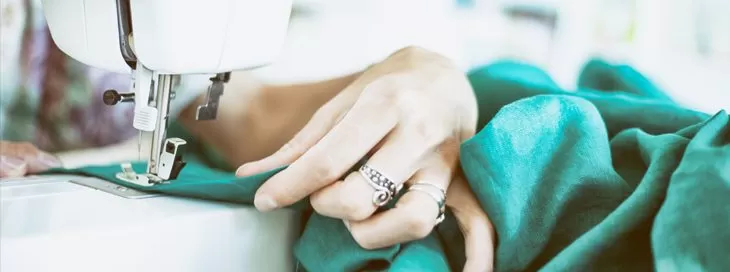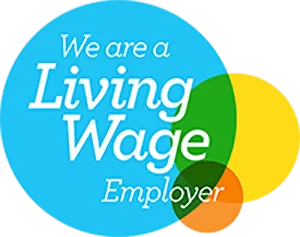
We often get asked whether our t-shirts & clothing products are sourced from the UK or overseas, and while this may seem like a simple question to answer it does in fact come with some complexities.
Are T-Shirts Actually Made In Great Britain?!
Most want to buy ‘made in the UK’ t-shirts to mitigate the poor ethical and environmental conditions overseas. However, what most don’t realise is that cotton isn’t grown here in the UK.
Cotton requires hot, wet and humid conditions and a long sunny season in order to grow. In the UK we don’t have these conditions. Therefore even with ‘Made in Great Britain’ products, the cotton farms producing this cotton are generally in overseas locations. If these farms are not Fairtrade or ethically certified in any way, then you may not in-fact be mitigating poor standards at the farming end of the supply chain.
There are some companies that do import the cotton and then process it here in the UK. Others have the cotton processed overseas, and then cut and stitch the fabric here in the UK. Some only do the finishing in the UK. It really varies depending on the supplier.
Are T-Shirts Made In Great Britain Ethical?
What is important to understand is that buying something made in Great Britain, doesn’t necessarily mean it’s been produced ethically. In 2014 the Ethical Trading Initiative (an alliance of companies, organisations, and trade unions) estimated 75% to 90% of the garment industry in Leicester, UK, was paying less than half the legal minimum at the time.
A recent HM Revenue & Customs investigation (2019) investigating 93 textile industry employers (since 2012/2013) also revealed that exploitation in the industry here in the UK was still rife. They found underpayment in roughly 1 in every 4 investigations opened.
You can read more about this here.
The Cost Of UK Manufacture Compared To Overseas
If you are buying something that has been made here, you should typically expect it to cost more. You have to consider that UK wages are much higher than in less developed nations, as are the overheads. This in turn, increases costs of manufacturing.
It’s worth noting this is (to a degree) proportionate to the cost of living – so what may be a terrible wage here may allow for a good quality of life somewhere else in the world.
If the price of a UK made product is coming in at the same price as something made overseas, generally it’s worth investigating the ethical standards of the product.
Things To Consider With Overseas Manufacture
Reverting back to proportionate costs of living, this is something we see twisted in the media often. We see a lot ethical brands slammed with headlines like “Employees earn less than $X per hour for a £X t-shirt”. There are a few elements that the media fail to factor in when making these claims.
For example that rate per hour may be a good living wage in that country, it also doesn’t factor in the cost of transporting, marketing and selling the t-shirt, nor the laws in the country of origin. There are two other significant problems:
- Generally brands do not own the factory producing their garments, and in fact many brands are using that same factory. So if one brand insisted on paying the workers making their products more, every employee would want to make the products for that higher paying brand. It would be incredibly difficult for the factory to manage this. However, if they increased pay across the board to the rate that the single brand were asking them to meet, the factory risks losing all of it’s other customers due to higher costs. In turn they would likely go out of business, or have a very high level of risk, with their existence dependent upon a very small number of clients.
- If the western world stops buying from overseas, many people would lose their jobs and be worse off. It’s vital for ethical brands to stay in these countries to help continue to push these factories and countries to go further in terms of social and environmental compliance.
This by no means excuses the problems, but it does give a bit of an idea of the complexities that surround them. With this in mind, if a brand is known for its ethics it’s always worth taking a deeper look beyond the headlines, as in SOME instances, there may be more to it than meets the eye.
What Is The Best Option?
The ethical and environmental problems in the garment industry are systematic, and the best way to mitigate these issues, whether buying products made in Great Britain or elsewhere, is to look for external certification that examines the ethical and environmental standards of the supply chain.
We recently created a guide on how to ensure your printed t-shirts are ethically made.
While our t-shirts are printed, embroidered and decorated here in the UK, the cotton is sourced from overseas, alongside the processing and construction of the garments. This is in part because we’ve not been able to find a UK supply chain that meets our stringent requirements, nor one that is resilient enough to cater for the needs of our clients.
Additionally, we believe there is value in supporting those within the developing world, to help drive better practices across the board. Therefore, while we do source our products from overseas, we also offer the widest range of ethically and environmentally certified products available in the UK. Ensuring a supply chain that you can trust in.

